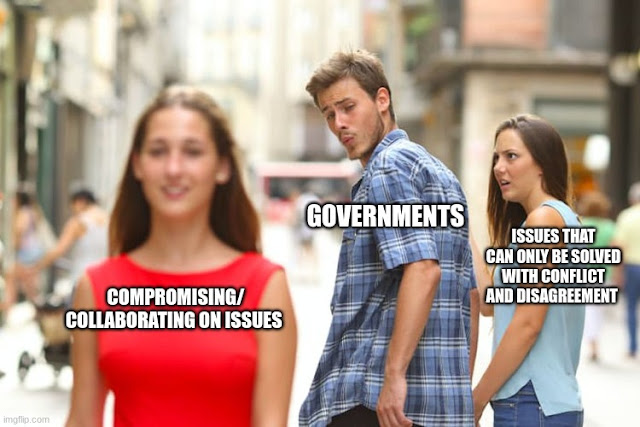Communications, Culture, and Organising: Marshall McLuhan finds relevance in every class I take
Contrary to my assumption, this chapter is not really about culture. Well, the kind of culture I imagined. I thought that this chapter would be about how different cultures and environments communicate and organise themselves. Instead, this chapter is more about categories of defensive and supportive communication. This is useful info, even though my culturally-curious side is left slightly disappointed.
In this chapter, the author discusses the fact that communication isn't just what you say- its how you say it. Your tone, context, or even style of communicating can have a great effect on the overall message. Was it Marshall McLuhan that said "The Medium is the Message?" Well, when the medium happens to be our voices, we can keep an eye on the ways we speak that spark either defensive or supportive reactions in our audience. In understanding the ways our speaking styles impact our audiences, we can be more successful communicators.
Some examples of categories of defensive or supportive communication include:
Evaluation and Description:
The use of Evaluation in communication can be combated with descriptive speech; speech that seems to evaluate people makes them feel defensive and judged. If you instead speak descriptively, it arises a minimum amount of unease, and lets your audience know that you are an authentic speaker who knows their stuff.
Strategy and Spontaneously:
When a speaker appears to have some sort of ulterior motive or strategy, it makes people feel defensive and uneasy. People are sharper than we give them credit for, and can sense when something feels unhinged. On the other hand, speaking 'spontaneously' (to a point) can make the audience feel more at ease.
Neutrality and Empathy:
One might think that neutrality is the way to go. Well, depending on the situation, sometimes it can be. However, the text suggests that empathetic speaking is more supportive than neutral, which can appear very non-nonchalant. A non-nonchalant attitude is something you don't want when talking about something like pay cuts or the lack of holiday bonuses. If you are the boss delivering this news neutrally, people might fly off the handle because they believe you don't care!
All in all, a good communicator could remember that communication is a cultural, flexible process. It is influenced by your own style of speech- which can be harnessed in a positive way to achieve the best outcome.

Comments
Post a Comment